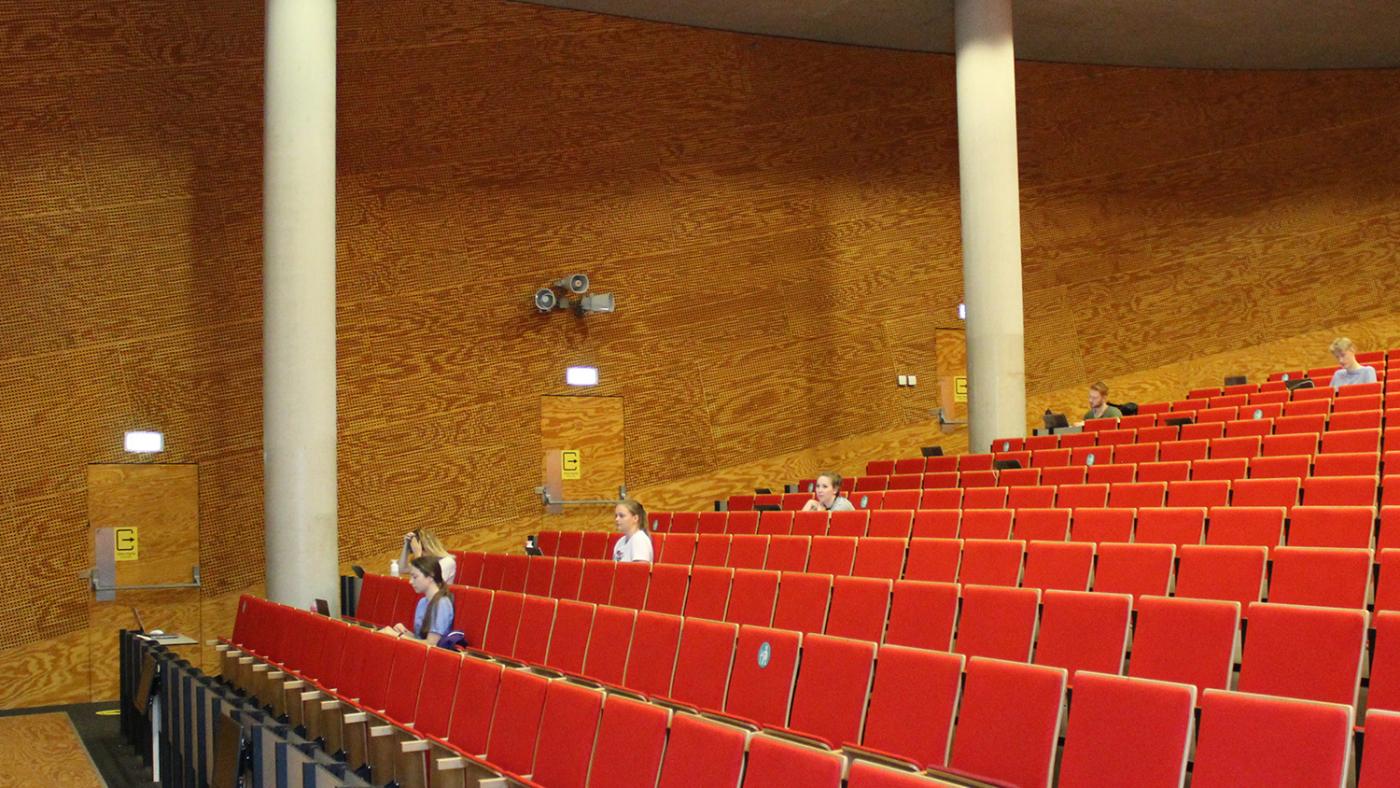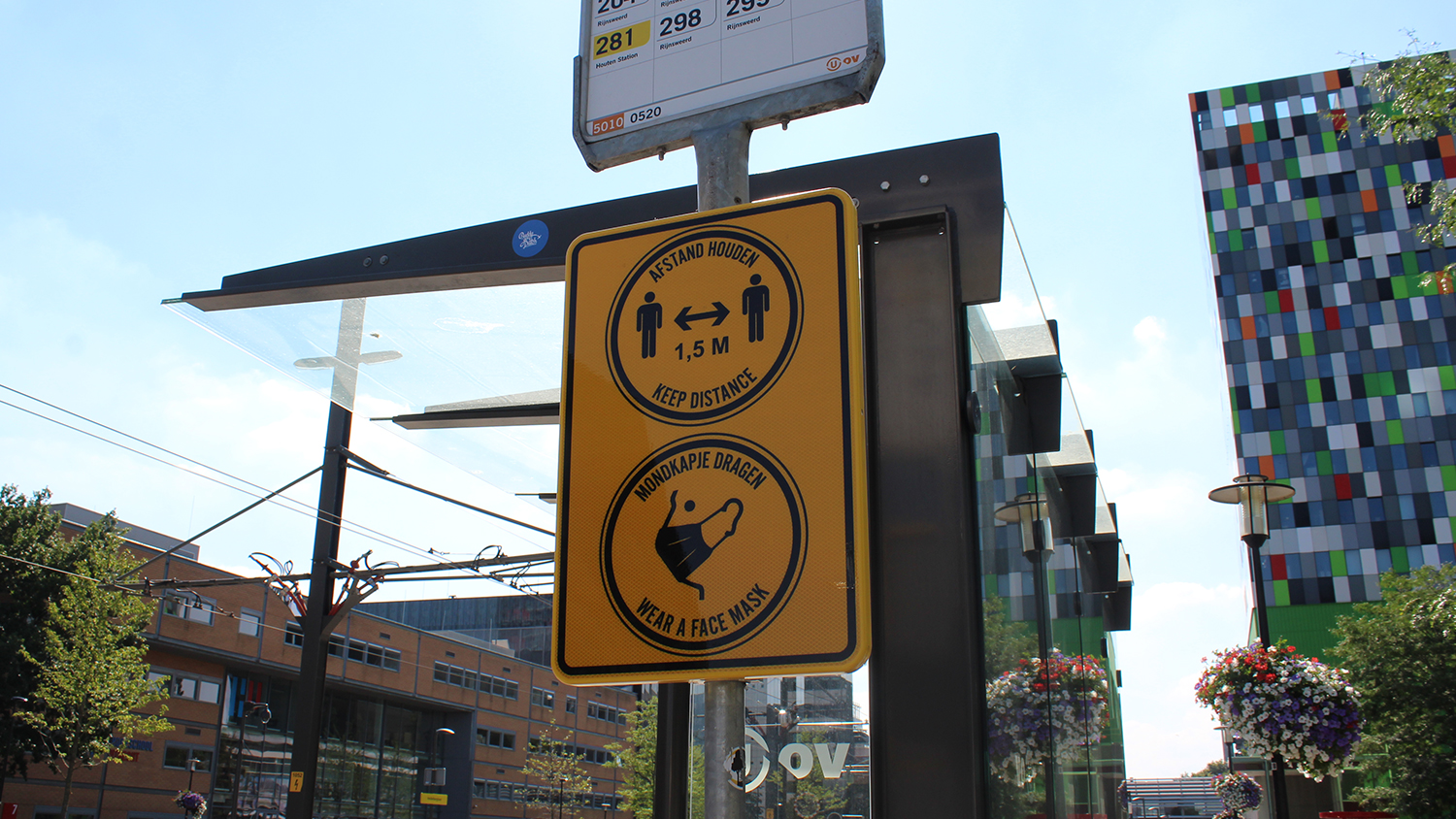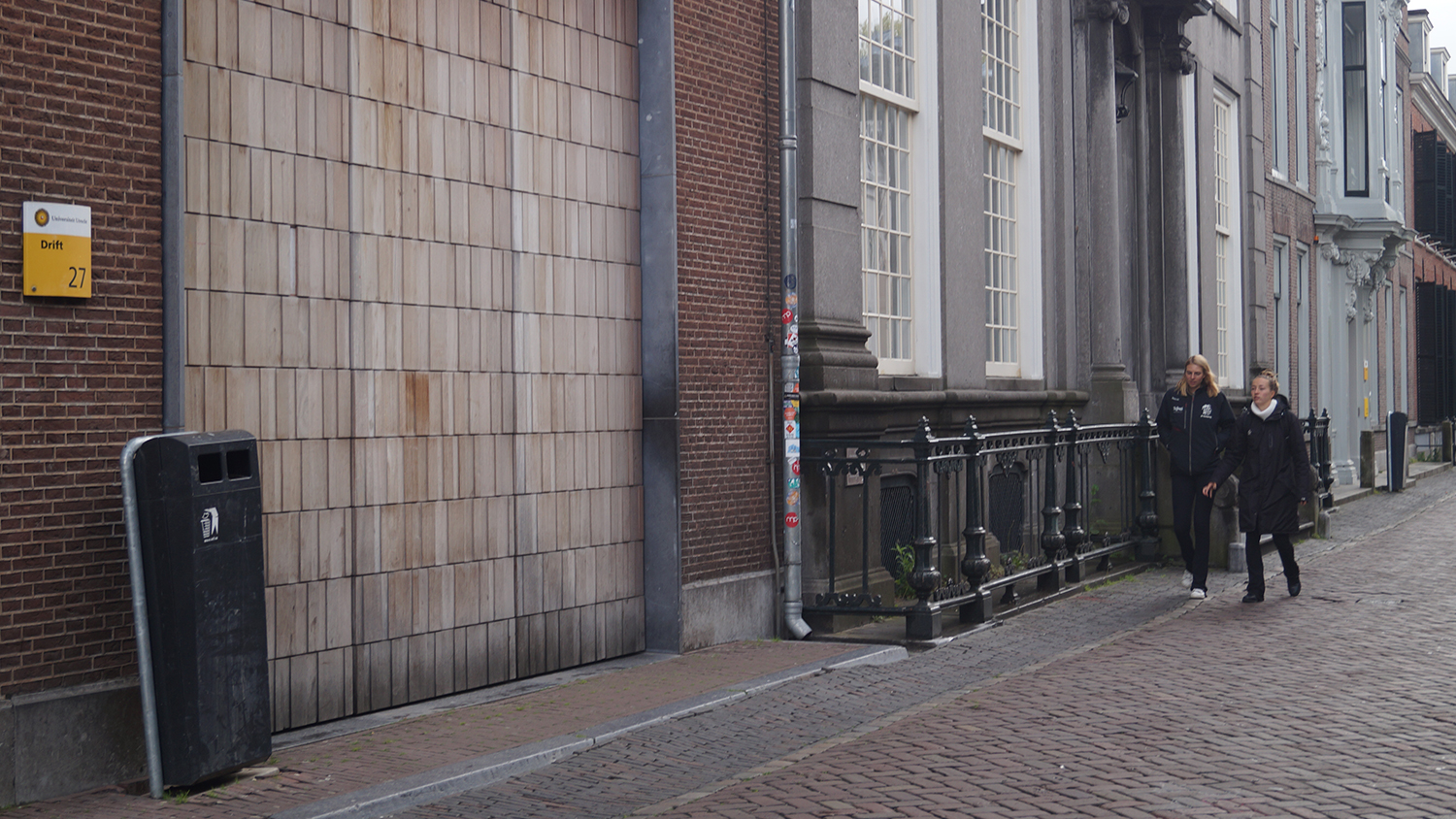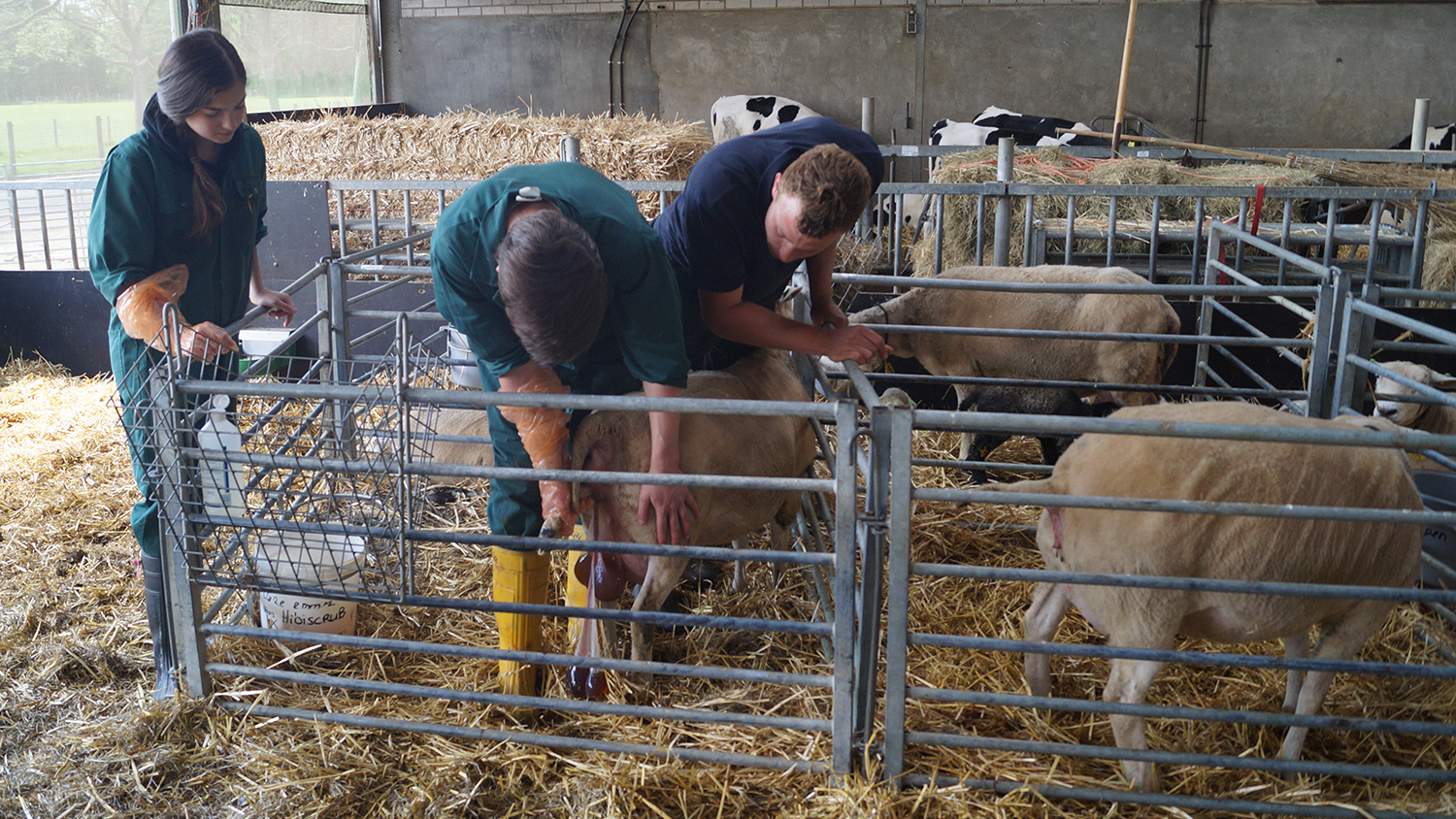How soft is the landing for freshmen?

The student unions aren’t too reassured. Because the freshmen aren’t taking as many in-person classes as they usually would, it’s possible the drop-out rate will be much higher this year. For that reason, the unions have created a list of recommendations. Universities of applied sciences and universities, the ISO and LSVb say, should ensure new students build a connection to their study programme, the city, and each other. The institutions should provide a ‘soft landing’.
Good education isn’t only about knowledge
Utrecht University is also aware that a soft landing is needed for the incoming students. Although a large chunk of the classes in the first and second blocks will still be taught online, the board has asked the programmes to ensure bonding and in-person meetings where possible, especially for the first-year students. Rector Henk Kummeling: “Good education isn’t only about knowledge; it’s also about socialisation, being a part of a certain community, culture, and tradition. That socialisation helps the first-years develop themselves, and to take on an autonomous, independent attitude. That’s why it’s so important that the first-years get the chance to meet each other.”
At the same time, the programmes do have to follow the corona guidelines. That means students have to stay at 1.5 metres distance from each other, the buildings have to be corona-proof, and activities for groups of students have to be scheduled on one single day. The idea is that students will then have to travel as little as possible. “The safety region is worried about the increasing number of people in traffic, public transportation, on bicycles, and in cars,” says Renée Filius, head of Education for the department of Students, Education, and Research.

The faculties have gone to work with the demands and desires. This was quite the job to do. Lecture halls, for instance, can only be used at 1/3 capacity. For larger programmes, like Law and Psychology, small workgroups have to be created. Programmes with a high number of practicum sessions have to create a schedule which allows all students to use the lab while following the regulations. Other programmes, for instance at Humanities, struggle with a lack of space. The city centre buildings are small, and have narrow hallways that aren’t easily made corona-proof. The schedulers have worked tirelessly throughout the summer.
Introduction requires approval from Safety Region
In their letter, the student unions point out the importance of a good introductory programme. The UU programmes concur. Usually, the introductory programme is organised in conjunction with the study association, and the same holds true for this year.
Veterinary Medicine and study association DSK, for example, have organised a week in which all first-year students are addressed online. But after that, each day small groups of students will take a tour to get to know the buildings, their tutors, and study associations. Every day will end with a joint meal.
Other faculties and their study associations are also organising activities that will, at least partially, take place at the university. At the faculties of Humanities, Law, and Social Sciences, there’s room and time to get to know each other and the associations. At Sciences, much of the responsibility for the introductory programme traditionally lies with the study associations. Geosciences is concentrating on informing students about the educational programme and tutor meetings in small groups. Some study associations are organising tours through De Uithof.
The issue that arises when organising introductory meetings is that it requires approval from the Safety Region. To prevent all programmes from submitting requests, the decision was made to submit one joint request, says Arjen van Vliet of the department of Students, Education, and Research. The university has requested a generic exemption for all the faculties’ programme introductions. Van Vliet: “The Utrecht safety region would only give its approval if the introduction met a set of conditions. This includes, among other things, that the meetings are informative or concerning sports, no alcohol is served, and they end no later than 10pm. The safety region could have assessed all these activities separately, but it makes more sense to just give a kind of blanket exemption, where we as university will check whether the activities meet the requirements.” That approval has since been obtained.

Community moments
It’s not just the introduction that’s important in letting students feel at home. Several faculties want to create moments in the first block in which students get together outside of classes. “Think of, for example, chats with tutors, or a meeting of the students to exchange experiences,” says Peter Schrijver, vice dean of education at Humanities.
In the entire first block, students get together in half-sized workgroups every week to talk to each other
The faculties of Law and Social Sciences are starting this during the introduction, but will continue these activities throughout the semester. Large programmes such as Law and Psychology have also made room for contact in small groups with student mentors or tutors. “We’ve made it our highest priority,” says Elaine Mak, vice dean of education at Law. “For first-year Law students, we’ve developed a special educational module about mentoring and tutoring. That means that in the entire first block, students get together in half-sized workgroups every week to talk to each other about things like study skills or academic skills. They get to know each other, but they also learn what it means to be a law professional. Thinking about things like that is best done face to face.”
Renée Filius, head of Education, thinks these types of activities could work very well. “Students who come to Utrecht like to feel like their arrival contributes something, compared to taking classes from home. This could be through interaction with other students, or a meeting with a tutor.”
Thirty percent in-person classes
For the connection with the study programme and the university, the university board wants first-year students to take one third of their classes at the university. It’s preferred that students meet each other at least once for each course. Most programmes hover around or just under that thirty percent. This is partially because they also wish to offer in-person classes to second- and third-year students.
A third of the students are in the lecture hall, and two thirds follow the lecture from home
The faculty of Humanities has planned a total of 280 courses for all its programmes combined. Of those, 193 are fully online. Eight courses are entirely in-person, because that fits best with that programme. Lab work at Art History, for example. For 79 courses, the faculty has created a so-called bi-modal form. “That means a third of the students are in the lecture hall, and two thirds follow the lecture from home,” Peter Schrijver explains. “So one in three lectures, a student will attend the class in person. This form is used relatively often for first-year classes, both in Bachelor’s and Master’s programmes.”
Law and Social Sciences did not elect to work with this bi-modal form. “We’ve asked each programme which courses are essential to teach in person,” says Leoniek Wijngaards-de Meij, vice dean of Social Sciences. “This might be because of the type of classes, or the content of the work groups, or because the work types are important in community building for students in the programme. It’s important to create room for discussion and debate in work groups. Programmes have listed priorities for each year, and we’ve ensured that those priorities could take place in person as much as possible, with a special focus on the first-years. It was an enormous task for the schedulers to find sufficient space and teachers for those workgroups. And they’ve succeeded.”
Law has also looked at the possibilities for in-person classes. Elaine Mak: “The programmes are combining online contact hours with in-person meetings in which debate and discussion go hand in hand with community building. But not all programmes have the same approach. For Public Management, for instance, there’s a little more room for smaller work groups on location, and Economics has more online-only classes, mainly because that programme has a relatively large share of international students who aren’t in Utrecht.”
The Law programmes did not have to change any learning goals for their courses. Mak: “But we did ask teachers to find appropriate didactical approaches for the online education. There’s also a lot of support for teachers from the centre for academic teaching to do so.”
This doesn’t only apply to Law; other faculties have also worked with the Centre for Academic Teaching to find suitable didactical approaches for online education.
Practicum sessions
For programmes with practicum sessions, it turned out to be an enormous task to organise those sessions while following corona regulations. “That means you can have far fewer students in your classroom than usual. It was quite the operation to find sufficient space,” says Gerard Barkema, vice dean of Education at the faculty of Sciences. Similar sounds can be heard at Veterinary Medicine and Medicine. “Practicum sessions are so essential, they have to be prioritised,” says Berent Prakken, vice dean of Medicine.

Geosciences has chosen to implement a mixture of practicum sessions and first-year workgroups and meetings with tutors. The Earth Sciences programme was supposed to do fieldwork for three days, but that’s been changed to a one-day excursion in the Netherlands, with no overnight stay. “The challenge is to organise the programme in such a way that for each student, the in-person and online activities contribute to their learning process in comparable ways, and simultaneously ensure that the teachers aren’t bearing too large workloads,” says Hans de Bresser, vice dean of education at Geosciences.
Exams
In the creation of the programme, they’ve also considered testing. “We made it our priority to ensure that for all our years a course has not only exams online ,” Barkema says. Veterinary Medicine, too, has worked hard to provide its testing on location as much as possible.
We made it our priority to ensure that for all our years a course has not only exams online
For other faculties, this has proven to be trickier. At Humanities, around 90 of the 280 exams are on location. That doesn’t mean that all other exams will have to use the much-discussed proctoring, a form of surveillance that isn’t privacy-friendly. The faculty is looking at exams that ask for insight, writing essays, and creating presentations. In those cases, you end up with good exams that do not require proctoring.
“We didn’t use any proctoring in block three and four either,” says Mak of the Law faculty. “For first-years, too, it’s possible to organise take-home exams or essays. Those do not require online surveillance. For a number of exams, we’ve chosen to employ a different form of surveillance, via Starleaf, in which teachers or surveillance staff watch the students during online exams. We’re trying to avoid this as much as possible, however. We do want to organise a large-scale exam on location for the first-year students as well, for the experience. As a Bachelor’s director said, it’s a form of socialisation to experience that. Two hours of labouring in a large room, and then having a drink together afterwards.”
Monitoring
Most faculties are using tutors to keep an eye out for the students. “We’re letting the tutors keep track of the students, and we’ll regularly have meetings with course coordinators to see how they’re doing,” says Theo van Haaften, director of education at Veterinary Medicine.
“One concern we have is what to do with students and teachers who do not want to come to campus, or are unable to,” says Hans de Bresser of Geosciences.
Humanities has established a special workgroup to keep an eye out for hidden suffering. “If we notice first-year students being miserable at home, we need to be able to act immediately,” says Peter Schrijver.
Freshmen might also have more time and attention for their studies, because there are fewer opportunities to travel and party
There is some fear for students dropping out – especially because most programmes were unable to organise matching days. Moreover, secondary school students were unable to take their regular final exams. Leoniek Wijngaards-de Meij has studied the matching in previous years. “It’s definitely a point of concern that these students have not had a mandatory introduction without matching. Still, it’s hard to indicate which factors will be of importance in possible drop-out cases. Some students may struggle with working from home; others may not have been able to get to know the programme beforehand, or struggle with the switch after months of not studying without final exams at secondary school. But freshmen might also have more time and attention for their studies, because there isn’t as much to do outdoors, there are fewer opportunities to travel and party. That could have a positive effect on study results. In any case, it’s a special group, the ones that are starting their studies now.”